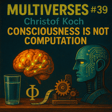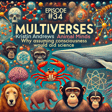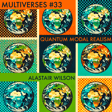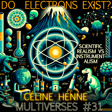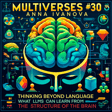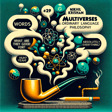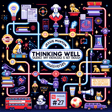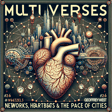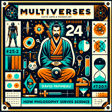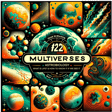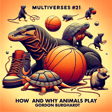
37| Mind-Wandering — Kalina Christoff Hadjiilieva on the Science of Spontaneous Thought
Mind-wandering is often dismissed as a distraction, an idle drift away from productive thought. But what if this spontaneous movement of the mind is not just a quirk of cognition but a fundamental feature of how we think, create, and find meaning?
Our guest, Kalina Christoff Hadjiilieva, is a Professor of Psychology at the University of British Columbia where she leads The Cognitive Neuroscience of Thought Laboratory. Her work explores the neural mechanisms behind mind-wandering, uncovering how our brains shift between goal-directed focus and free-flowing exploration.
Kalina argues that mind-wandering is not a failure of attention but an essential cognitive process—one that fuels creativity, problem-solving, and insight. While some scientists define mind-wandering narrowly as thinking about anything other than the task at hand, she proposes a broader, more dynamic definition: mind-wandering is thought moving freely, unconstrained by immediate demands or rigid patterns.
Neuroscience has long favored studying controlled, deliberate cognition. The executive brain functions—the ones we can track, measure, and influence—are often given priority. But Kalina points out that the vast majority of brain activity is spontaneous and unexplained. She advocates for a shift in perspective: instead of treating free thought as noise, we should recognize its role in structuring our experiences, shaping our beliefs, and allowing us to make sense of the world.
Mind-wandering, Kalina suggests, is not just about distraction—it is about discovery.


